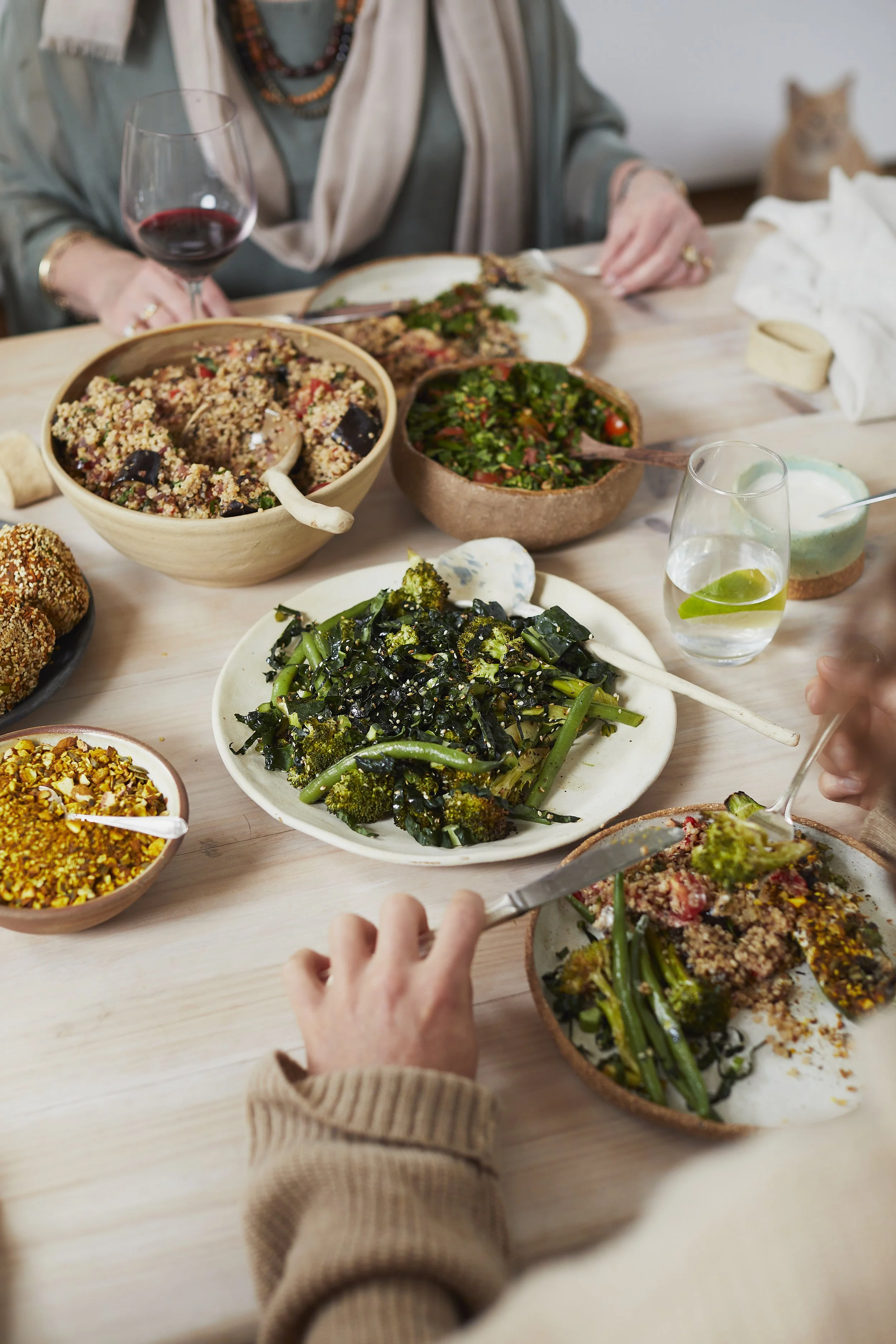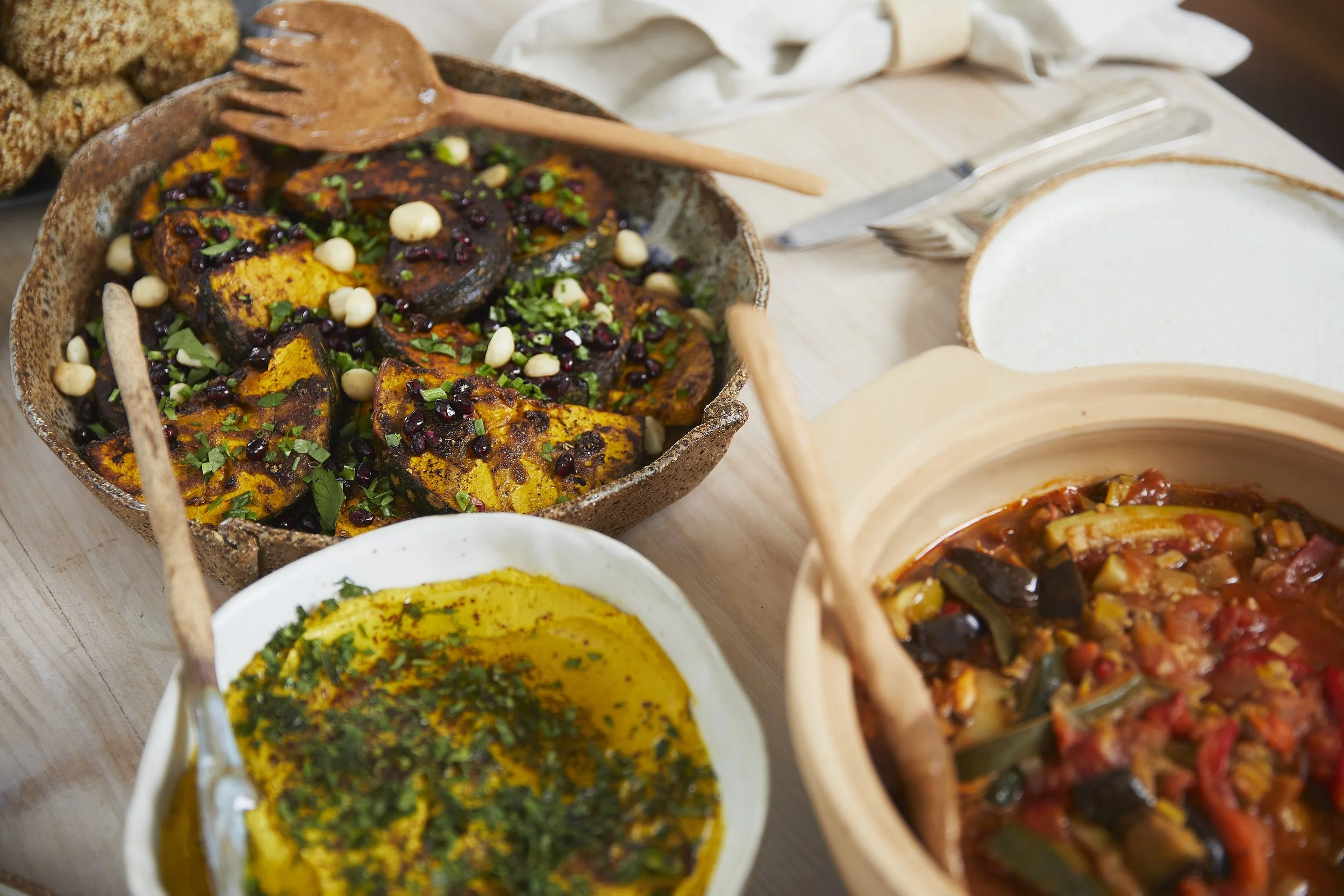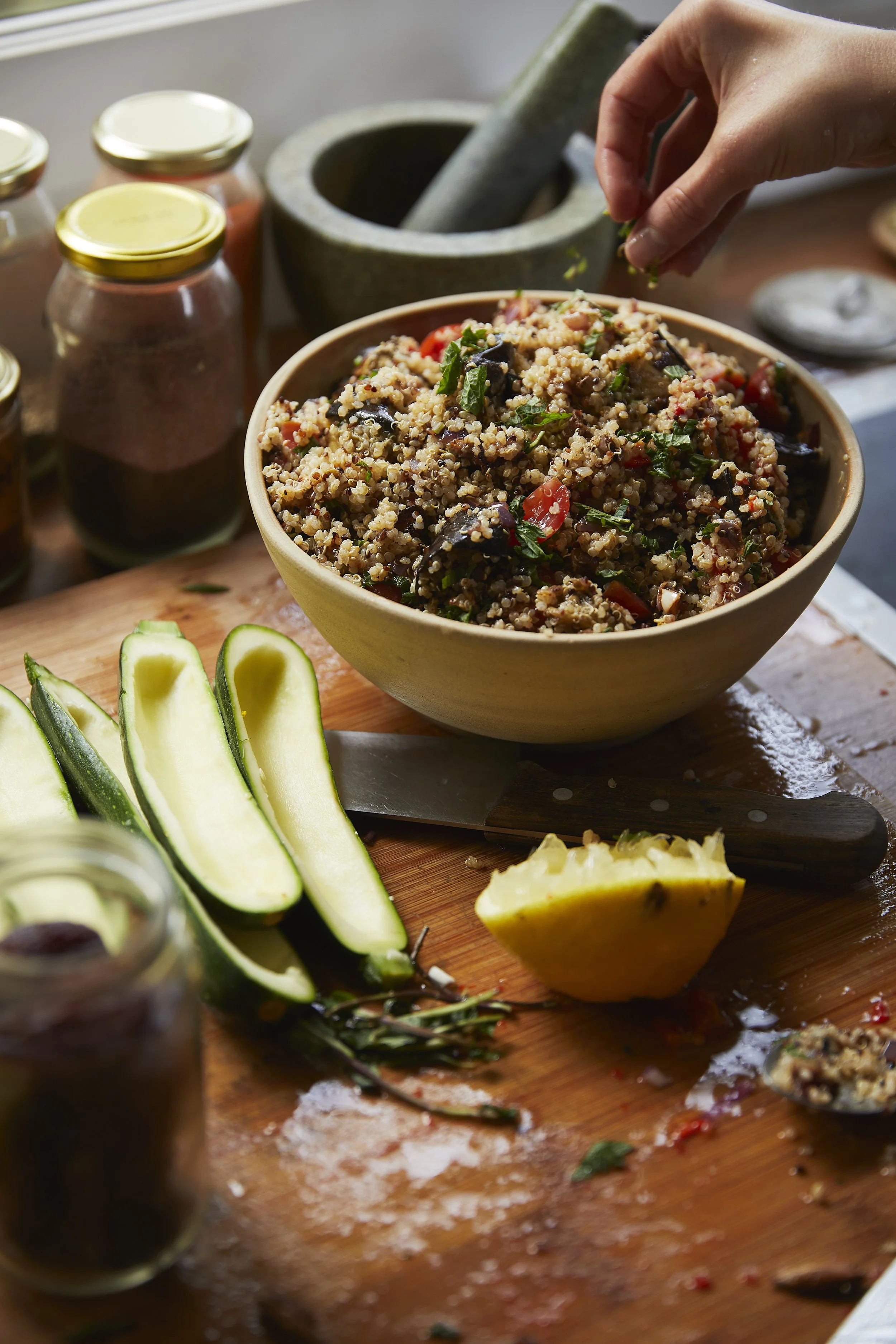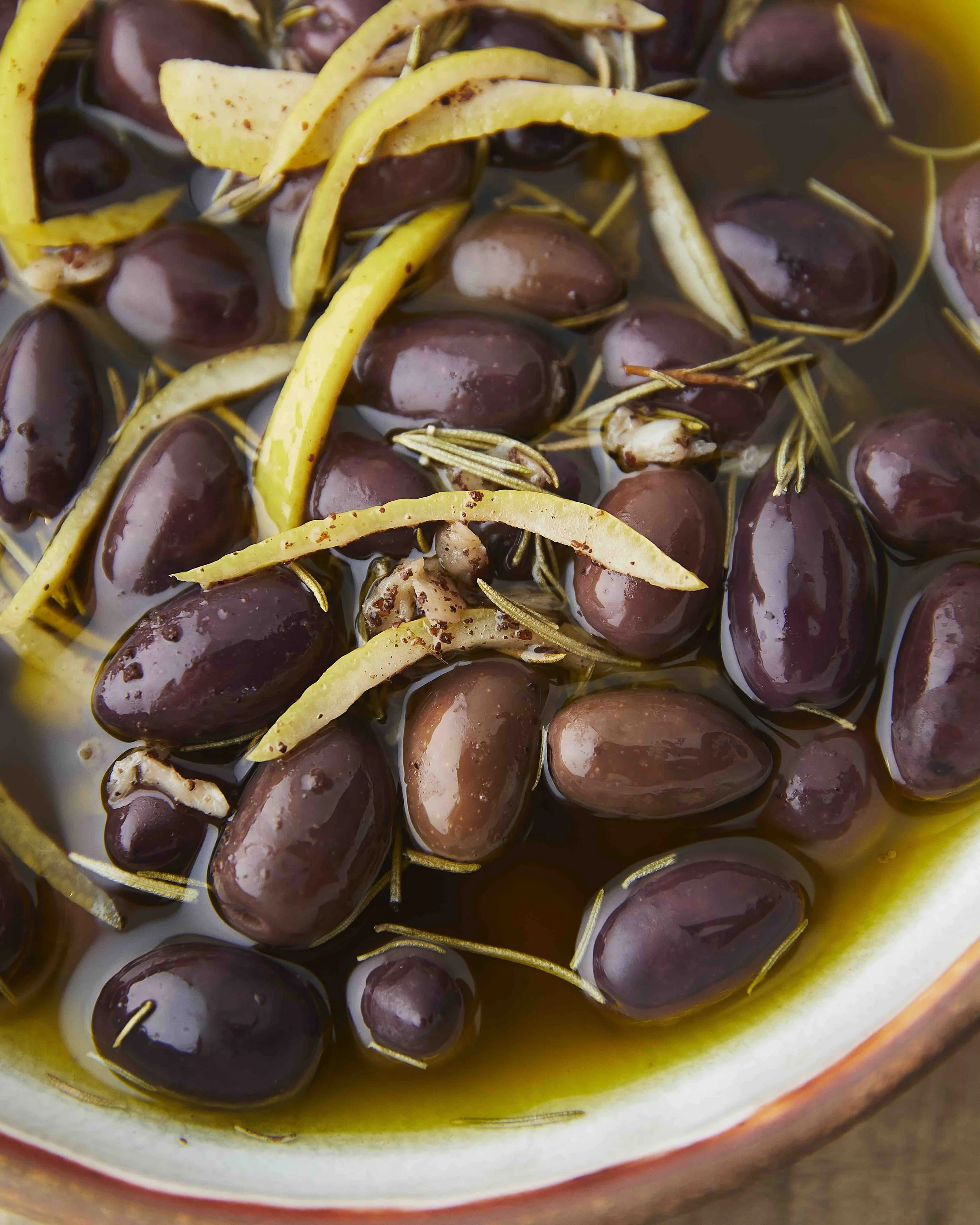A chef’s guide to Infusing and Marinating and olive recipe
I am often asked… ‘How do I become a better cook?’
I see people following recipes instead of truly understanding how ingredients and methods work. So once a month, I'm going to share with you the alchemy of cooking. That way you can start creating in the kitchen with confidence.
This month we are chatting about infusing and marinating
The Magic of Time
The difference between good food and extraordinary food often lies in patience and technique. Infusing and marinating are two fundamental methods that transform ordinary ingredients into flavor powerhouses, and mastering them will elevate your cooking.
Understanding the Basics
Marinating involves soaking proteins, vegetables, or other foods in a seasoned liquid mixture to enhance flavor and often tenderize texture. Infusing, on the other hand, extracts flavors from one ingredient to enhance another – think vanilla-infused cream or herb-infused oils.
Both techniques rely on time and the science of flavor penetration. Acids like lemon juice or vinegar help break down tough fibers, while oils carry fat-soluble flavors deep into ingredients. Aromatics like garlic, herbs, and spices provide the flavor foundation.
"The real artistry happens when these elements work together.”
Infusing
Infusing is when an aromatic is added to a liquid and heat and time are applied. For example, when you make tea you are infusing the herbs, spices and botanicals with hot water.
It is also a very easy way to enhance a dish showing off the exchange of ingredients. Transforming ingredients with a bit of time and heat.
Marinating
To Marinate, basically means that you soak food in a liquid. You can marinate pretty much any food. However, tender foods generally marinate better because they can absorb the liquid. Some good options are tempeh, zucchini, eggplant and mushrooms. Harder foods such as carrots can also be marinated, but you will want to make sure they are sliced thinly so the flavor gets transferred into them.
How long should you marinate vegetables and other plant-based foods? It depends on a lot of factors. The more sponge-like the food, the less time is needed to absorb the marinade (think zucchini compared to carrots). Also, thinly-sliced foods with a larger surface area are going to need less time to marinate.
Veggie Proteins (tofu, tempeh): Marinate for at least 30 minutes or up to several hours. If marinating overnight, cut tofu into larger slices so it doesn’t fall apart when you cook it.
Hard Vegetables (potatoes, carrots, beets, etc.): Marinate these veggies for at least 30 minutes or overnight.
Semi-Hard Vegetables (green beans, asparagus, capsicum, etc) Marinate for at least 30 minutes or up to several hours.
Soft Vegetables (broccoli, tomatoes, greens, etc.): About 10 minutes is good. Don’t marinate these for longer than 30 minutes because they will release water and get soggy.
Marinate in a ceramic dish or plastic container. DON’T MARINATE IN A METAL BOWL! Most marinades contain an acid (like vinegar). The acid will react with the metal and cause it to impart a metallic taste into the food.
Cooking marinated food
In general, marinating is used when foods will be cooked in a way which would dry them out. For example, grilling really dries out food. By marinating food before putting it on the grill, you add some moisture so the food stays tender.
A good marinade contains:
ACID
Examples: Vinegar, orange juice, wine, lemon
Why: Tenderizes proteins and helps boost flavor of other elements in marinade
+
OIL/FAT
Examples: Olive oil, sesame oil, coconut oil, yogurt, or coconut milk
Why: Coats the food and keeps it from drying out; also helps carry flavor
+
HERBS/SEASONINGS/SWEETENER
Examples: Garlic, herbs, ginger, chilli, coconut sugar, maple, spices
Why: Adds flavour
Marinated Olives
This is a really easy recipe that shows off how when you pair ingredients well you don’t need much to create a delicious dish. You can find more recipes like this one, in our cookbook ‘Anything’s Possible’.
Ingredients
1⁄2 cup olive oil
2 tsp garlic, minced
1 sprig of rosemary, leaves removed from the stem or1 tbsp dried rosemary
rind of 1 lemon, cut into thin strips
350g mixed olives, quality makes a big difference, try your best to buy organic or local
3 tbsp apple cider vinegar
1⁄2 tsp sumac
1⁄2 tsp cayenne pepper
1⁄2 tsp salt
Method
Put olive oil into a medium pot and place on medium heat. Once hot, add the garlic, rosemary and lemon rind for about 3 minutes. Take off the heat.
While hot, add the olives, apple cider vinegar, sumac and cayenne pepper and salt. Combine.
Transfer to a clean jar and place in the fridge for 1 to 3 days to marinate.
Remove the jar from the fridge 1 hour before serving to let it come to room temperature.







